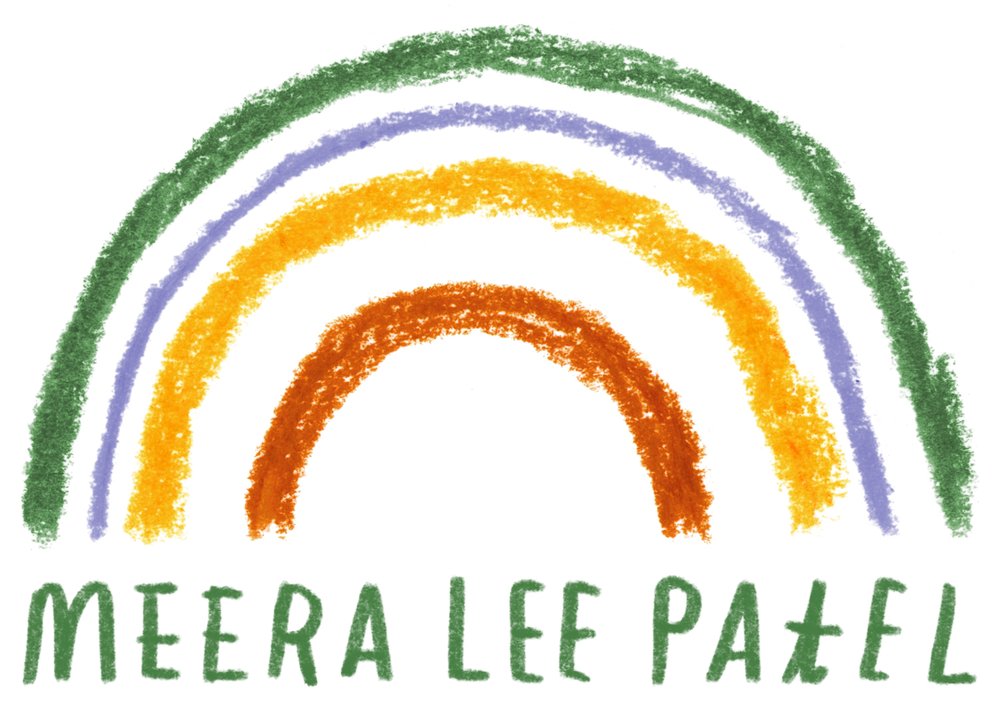An illustration for my column, Being, in Issue #61 of Uppercase Magazine
A year from now, here are five things from this week that I'd like to remember:
MONDAY
When T pulls handfuls of weeds away from our hydrangea bushes, we discover a mourning dove sitting quietly, her back against the brick of our house. T stops pulling weeds; N stops eating; I stop talking. Is she nesting? Is she hurt? How can we help? We didn’t mean to expose her, but we have. We go inside. From the window I watch her two small eyes blinking in the sun.
When F contracts an illness, I know the week ahead will be gutted, and it is. The sitter is canceled, my work is placed on hold indefinitely. The deadlines pile up, as does the laundry, the dust. My inbox groans; my daily poem practice falls further behind.
I don’t optimize. It doesn’t make sense anymore. In the past, I have worried, having convinced myself that worrying is doing something and therefore, at least, still productive. Of course, I was wrong; each day, I continue to be. If there’s a purpose to life, maybe this is it—to constantly unlearn until, at the end, I am stripped of all belief, leaving the way I came in: honest, unharmed, full of possibility.
I don’t optimize. I have worked too hard at letting go. There are no to-do lists in my head. I don’t write poems while F takes her bottle, I don’t clean the house while she eats oatmeal. I spend time leisurely, as if I have boatloads of it, as if someone out there is making more of it for me. We sit outside and listen to the world. I ask F if she remembers the eclipse and the way the sky moved like a movie. She wails in response. She cries a lot. She coughs a lot. I sit with her and together, we do nothing. I am here.
More than once, she crawls into my lap, buries her face in my shirt, and falls asleep. I wish I had my phone, I think to myself, so I could do something. Old habits die hard, but I recognize the impulse, however warily. I don’t retrieve my phone. Instead, I do what I am doing: I sit on the second-floor landing and rub F’s back with my hands, staring at our hallway walls. I am here.
I rock F to sleep, something I haven’t done for the past 8 months, and in this act, she feels like a baby in my arms once more. I admit, I am nostalgic. Maybe it’s because she’s turning one next week, maybe it’s because I am turning decades older than that. Maybe it’s because there is no match for a moment sweeter than this one, where a child sleeps safely in my arms. Maybe it’s because there’s safety in these moments for me, too. I am here. From above I watch her two small eyes blinking with sleep.
TUESDAY
I read Go to Sleep (I Miss You) and Kid Gloves by Lucy Knisley; I read Tokyo These Days by Taiyo Matsumoto (that cover!); I started Sunny by Jason Reynolds. I am re-reading James Marshall’s eulogy for Arnold Lobel, one of my favorite children’s writers and illustrators, and a fellow devotee of friendship.
WEDNESDAY
For my latest Being column in Issue #61 of Uppercase Magazine, I wrote about how the themes in our creative work change shape and expand, evolving as we do, but ultimately remain the same—they are fragments of our foundational selves that we will always explore.
I touch on the importance of revisiting past work, even if it’s difficult to do so:
“Revisiting old work is clarifying. It brings you closer to the person you were at that time—the person who felt pulled to capture a feeling, thought, or question through their art. It’s also a chance to notice how much you and your work have changed—a chance to acknowledge the creative obstacles you’ve puzzled through and the personal ones your artmaking pulled you through.”
—from The First Work I Make is the Last Work I Make for Uppercase Magazine #61, available now.
THURSDAY
Today, it was pointed out to me that my emotional vocabulary is pretty limited(!). I was both bowled over and energized by this comment. I’ve spent the past decade helping others identify and process their own emotions, only to quietly realize that my knowledge has plateaued. I am humbled and, quite honestly, enthused by how far there is to go.
I am reading How Emotions Are Made: The Secret Life of the Brain by Lisa Feldman Barrett in an immediate effort to remedy my own cause. I welcome further reading! If you have a book recommendation, please do share.
FRIDAY
Years do odd things to identity.
What does it mean to say
I am that child in the photograph
at Kishamish in 1935?
Might as well say I am the shadow
of a leaf of the acacia tree
felled seventy years ago
moving on the page the child reads.
Might as well say I am the words she read
or the words I wrote in other years,
flicker of shade and sunlight
as the wind moves through the leaves.
—from Leaves by Ursula K. Le Guin
xx,
M
To sign up for my weekly newsletter, Dear Somebody, please subscribe here.





